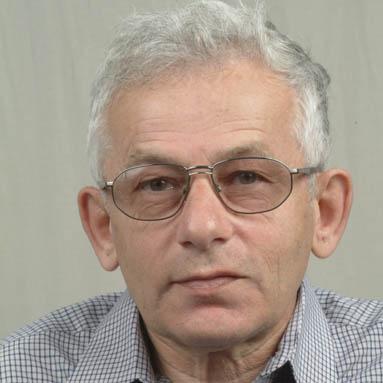

Konstantin’s research has, since the early ’60s, been focused on optimal control of distributed systems, specifically, on optimal material design. The journal papers and books he published since laid a solid foundation of this discipline, as we know it today. The need for optimal design comes from everyday life and from various technological requirements that put forth numerous challenges demanding better quality, less weight, lower cost, faster operation, etc. Today, these demands cannot be addressed on intuitive basis alone, as was true through centuries of world civilization, but appear to be an object of a special branch of applied mathematics. There are very substantial ties between optimal design and physics, mechanics, biology, and natural science in general; many natural formations—from rocks to birds’ wings—demonstrate features that an attentive and smart engineer would call optimal. The optimality concept goes far and wide, it embraces the fields that are, at first sight, well apart, e.g., communication systems and nanostructural design, or traffic control. Through the last decade, Konstantin extrapolated these principles to material dynamics by introducing a novel concept of dynamic materials, i.e., the material formations with properties variable in space and time. These substances can be artificially maintained by traditional engineering means and will serve as adequate controllers of dynamic processes because they will timely respond to environmental changes. In many substantial aspects, dynamic materials remind a living tissue, which is the only known example of a dynamic material from nature. In his work with students, Konstantin tries to encourage their interest to finding resources hidden in a system and to working out the means that could help disclose those resources and make a system smartly designed. Engineering intuition thus receives an additional impulse due to a special contribution from applied mathematics.

Konstantin’s research has, since the early ’60s, been focused on optimal control of distributed systems, specifically, on optimal material design. The journal papers and books he published since laid a solid foundation of this discipline, as we know it today. The need for optimal design comes from everyday life and from various technological requirements that put forth numerous challenges demanding better quality, less weight, lower cost, faster operation, etc. Today, these demands cannot be addressed on intuitive basis alone, as was true through centuries of world civilization, but appear to be an object of a special branch of applied mathematics. There are very substantial ties between optimal design and physics, mechanics, biology, and natural science in general; many natural formations—from rocks to birds’ wings—demonstrate features that an attentive and smart engineer would call optimal. The optimality concept goes far and wide, it embraces the fields that are, at first sight, well apart, e.g., communication systems and nanostructural design, or traffic control. Through the last decade, Konstantin extrapolated these principles to material dynamics by introducing a novel concept of dynamic materials, i.e., the material formations with properties variable in space and time. These substances can be artificially maintained by traditional engineering means and will serve as adequate controllers of dynamic processes because they will timely respond to environmental changes. In many substantial aspects, dynamic materials remind a living tissue, which is the only known example of a dynamic material from nature. In his work with students, Konstantin tries to encourage their interest to finding resources hidden in a system and to working out the means that could help disclose those resources and make a system smartly designed. Engineering intuition thus receives an additional impulse due to a special contribution from applied mathematics.
Scholarly Work
"An Introduction to the Mathematical Theory of Dynamic Materials," Springer, 2007